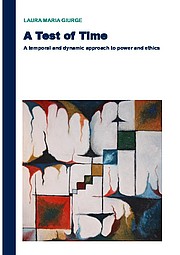A Test of Time: A temporal and dynamic approach to power and ethics Defended on Friday, 24 March 2017
Both behavior and cognitive processes are ongoing, dynamic, and temporal. They vary not only between individuals as a function of differences in personality and stable contextual characteristics, but also within. That is, the same person might engage in unethical behavior one day but not the next day. Apart from a few exceptions, research in organizational science has either ignored or treated within-individual fluctuations in behavior as measurement error. Yet, in order to gain a deeper understanding of why individuals behave the way they do we ought to zoom-in on their daily experiences and behaviors and tackle the issue of when and for how long things happen. The first part of this dissertation aims to achieve precisely this by zooming-in on two crucial organizational behaviors that are bound to vary from one day to another: decision-making and unethical behavior. The other part zooms-in even further on an underlying cognitive process that drives unethical behavior, moral reasoning, and aims to show that even this stable developmental cognitive process is susceptible to momentary influences. Taken together, the work presented in this dissertation contributes to various streams of research from power to moral psychology. It illustrates the importance of addressing the dynamic and temporal variations in behavior as well as in the underlying cognitive processes that drive behavior.
Keywords
Within-person variation, time, power, unethical behavior, experience sampling methodology













